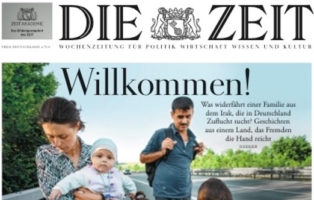Reading and Narrating the Migration/Refugee Crisis
Research Question
This project asks two main questions: First, how are imigrants/refugees streaming across Europe being constructed in the press and in the political narratives of both transit and destination countries? What are the different historical narratives, analogies and metaphors that are intersecting in responses to the crisis and what are the implications for the different receiving states, for relations between states, and for the future of the European Union?
Project Description
This project proposes an original approach in its emphasis on both receiving and transit countries’ policies and their publics’ perceptions of the migrants/refugees, but likewise, through its focus on the migrants/refugees themselves who are outside the processes of policy making and meaning making. We will first examine refugee/migration camps as abject spaces of
exception and bare life; second, processes of meaning making in the media and public sphere; third, emotion and suffering; and finally, we will explore the virtual and what this means in practice. Our aim in this project is twofold. First, to map out how specific narratives have been built around the European migration/refugee crises in both the media and in public political discourses; and second to develop an educational game to correlate the scenario with an actual historical context and a narrative of how it unfolds in reality.
Selected Publications
Blood and Oil: Inside the Shah’s Iran (1997, 2005) with M. Farmanfarmaian (New York: Random House); (London: Prion Publishing)
‘Media and the Politics of the Sacral: Freedom of Expression in Tunisia after the Arab Uprisings’, forthcoming, Media, Culture and Society (2017)
‘Iran’s Rhetoric Aggression: Instrumentalising Foreign Policy Power through the Media’ (2017) Iran Project Paper; Annenberg Centre of Global Communications, University of Pennsylvania; www.iranmediaresearch.org/en/system/files/irans_rhetoric_aggression_final.pdf?



